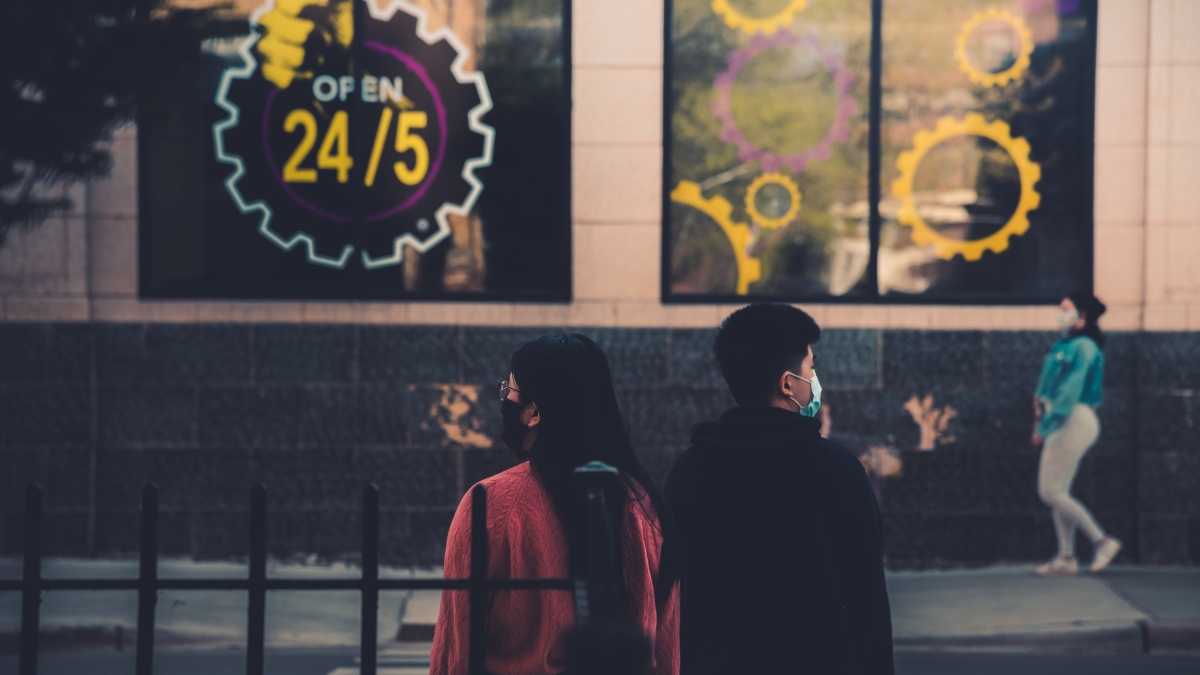ASU psychology department receives NSF funding to study behavioral effects of COVID-19

Psychology department receives NSF funding to study behavioral effects of COVID-19. Photo: Max Bender, unsplash.com
Scientists worldwide are working overtime to understand the myriad impacts of the COVID-19 pandemic.
The Arizona State University Department of Psychology was recently awarded three Rapid Response Research grants from the National Science Foundation to study how the pandemic affects behavior.
The impact of emotional coping strategies on health behaviors
The pandemic has introduced or exacerbated a wide range of stressors in people’s lives. Beyond fear of the coronavirus itself, fallout from the pandemic includes career challenges and unemployment, loneliness, strain on relationships and finances, and new demands from educating children at home to finding scarce household supplies. Many common methods of stress relief, such as socializing with other people, spending time at the gym or spa, and enjoying an evening’s entertainment outside the home, are now either prohibited or virtual.
“What is really striking about this pandemic, from a psychological standpoint, is that the entire country is facing a common stressor with huge impact on all of our lives,” said Michelle “Lani” Shiota, associate professor of psychology. “At the same time, there is this set of new, unfamiliar behaviors that we all need to engage in to protect our individual and community health, such as wearing masks and giving ourselves and others a lot of personal space.”
Shiota received an NSF RAPID Response Grant to study how people are coping with pandemic-related stress, and to ask whether the specific coping strategies people use predict their hygiene and social distancing behaviors as well as their psychological well-being. For example, prior research suggests that finding “silver linings” in stressful or unpleasant situations can help improve mental health, but are people who often use this coping strategy also more likely to wear a mask outside the home?
“Our emotions – and the way we regulate them – are not isolated from our actions in the world,” Shiota said. “The techniques we use to cope with stress likely have repercussions for how we understand and think about the situation, how careful we are in protecting our own health, how we relate to other people. There’s a lot of good evidence on the effects of different coping strategies for emotional well-being, but we know way less about implications for behavior under pressure.”
The behavioral immune system and prejudices
The human body’s immune system fights off pathogens, which can cause infectious diseases like COVID-19. People also have what scientists call a “behavioral immune system,” which includes the emotion of disgust and behaviors such as physical distancing. The behavioral immune system is designed to help people avoid becoming infected in the first place. When the system misfires, disgust-linked prejudices toward groups like unfamiliar foreigners, people with obesity or gay men, can result.
Steven Neuberg, Foundation Professor and chair of the Department of Psychology; Michael Varnum, associate professor of psychology; and D. Vaughn Becker, associate professor of human systems engineering, received a RAPID Response Grant to study how the pandemic affects prejudices that arise from the behavioral immune system.
“As COVID-19 spreads, activating the behavioral immune system and its associated prejudices, we will be able to test a wide range of ideas, including new hypotheses about how these prejudices affect the well-being and health-relevant decision making of members of groups targeted by these prejudices,” Neuberg said.
The funding will allow the research team to investigate how the current pandemic may shape the spread and prominence of different prejudices, cultural ideologies and policy preferences linked to disease avoidance.
“Because such outbreaks can affect prejudices, values, and policy preferences — each of which have broad economic and social impacts — we expect this work will be of interest not only to scientists, but also to governments, institutions, corporations, and ordinary people as they seek to respond and adapt to this and other crises,” Varnum said.
How emotions affect decision-making
Emotions profoundly affect how people make decisions and what they remember. People experiencing stress might struggle to resist temptations, like sticking to a diet during “quaranbaking.”
Psychology graduate student Blake Elliott — along with Samuel McClure, associate professor of psychology; Gene Brewer, associate professor of psychology; and Kimberlee D’Ardenne, research assistant professor — was awarded an NSF RAPID Response Grant to measure how people’s emotional state during the COVID-19 pandemic alters how they make decisions. The collaborative project will also examine whether brain anatomy predicts changes in decision-making as a result of the emotional impact of pandemic.
“We want to know if brain functional responses and connection patterns predict how an individual’s emotional state affects their decisions,” Elliot said. “The pandemic gives us a unique opportunity to study how emotions affect behavior.”
The project is based on Elliot’s dissertation research, which includes neuroimaging data and measures of impulsivity, memory formation and decision-making that were collected before the COVID-19 pandemic. The NSF RAPID funding will let Elliot and the research team collect updated impulsivity, decision-making and memory formation measures. They will then examine how they change as a result of the pandemic and whether brain anatomy predicts any changes.
More Law, journalism and politics
Can elections results be counted quickly yet reliably?
Election results that are released as quickly as the public demands but are reliable enough to earn wide acceptance may not…
Spring break trip to Hawaiʻi provides insight into Indigenous law
A group of Arizona State University law students spent a week in Hawaiʻi for spring break. And while they did take in some of the…

LA journalists and officials gather to connect and salute fire coverage
Recognition of Los Angeles-area media coverage of the region’s January wildfires was the primary message as hundreds gathered at…

